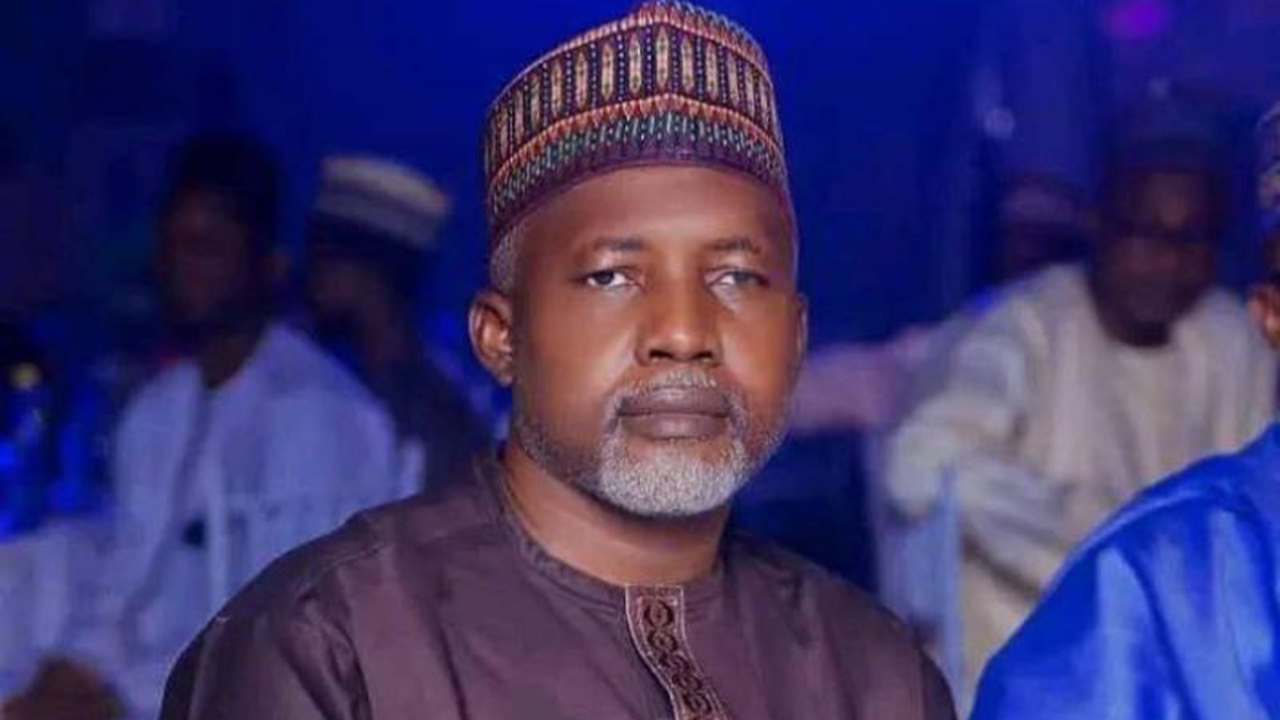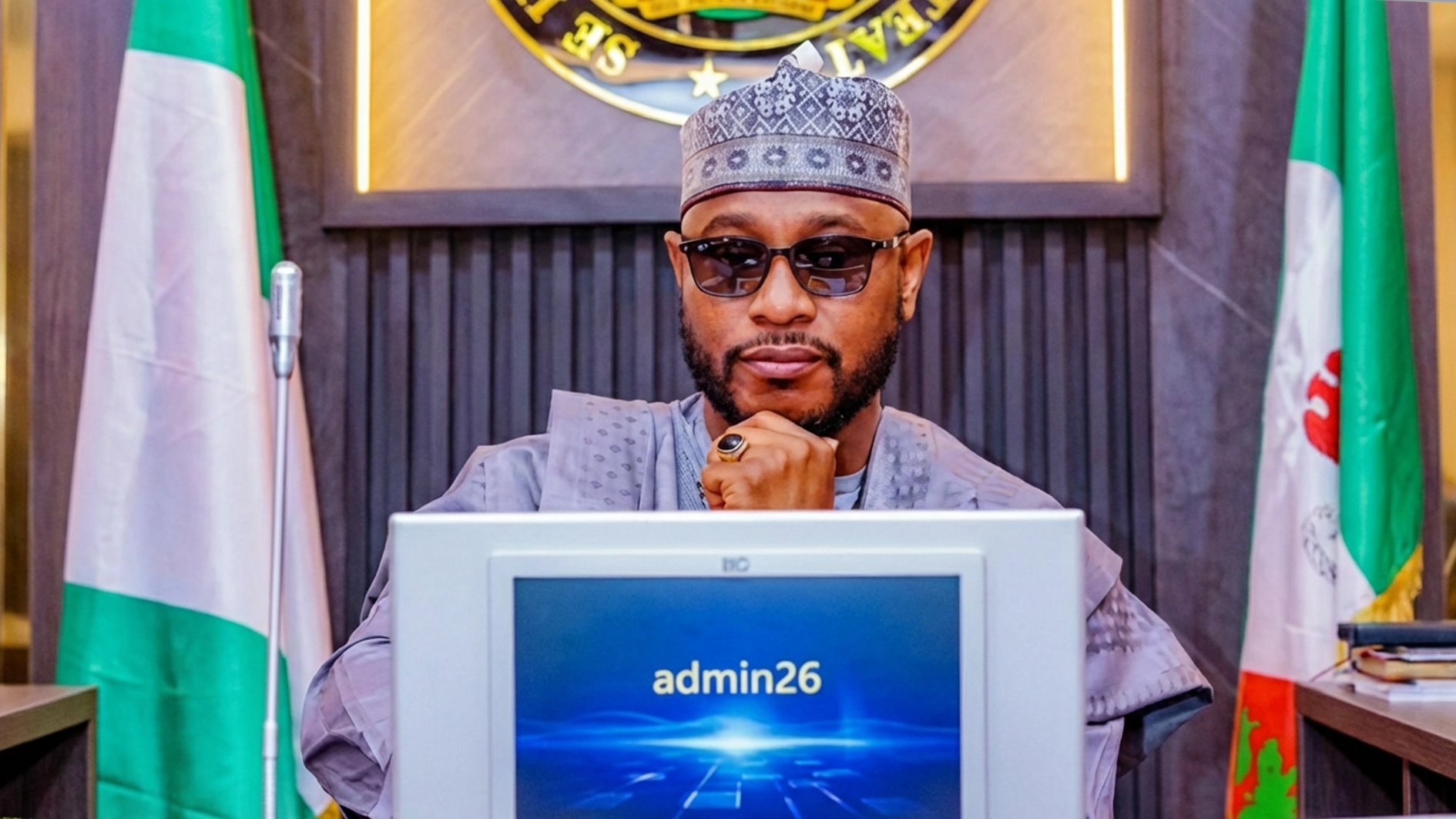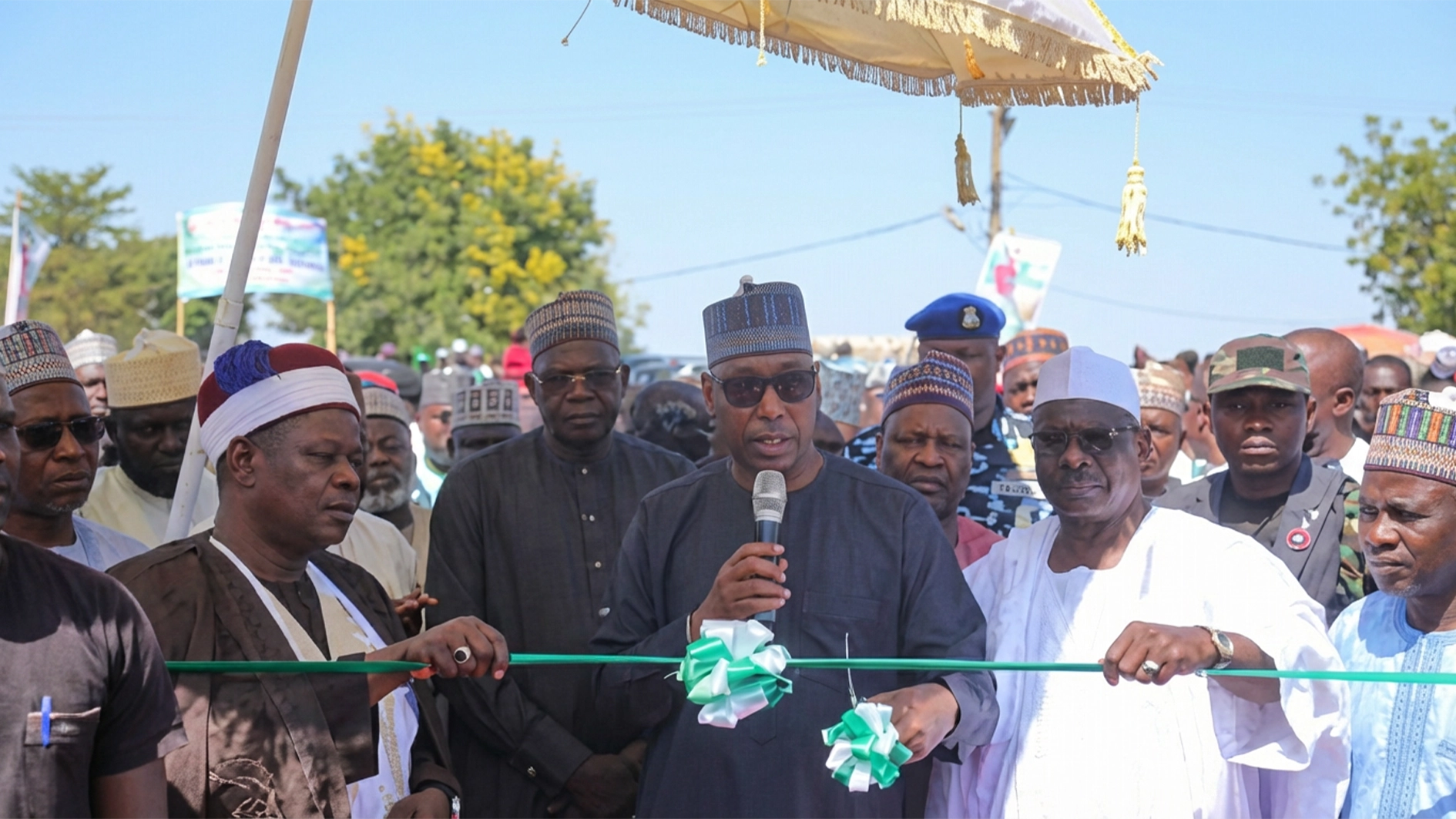
To leapfrog its decades of shambolic academic system, and align with current realities cum future possibilities, the Nigerian government is cooking a new curriculum. Besides cautioning against limiting problem-based learning to science subjects, sundry stakeholders are also canvassing the incorporation of project-based learning, real-world business challenges into the curriculum, as well as, a review of the curriculum to recognise inclusive classrooms, IYABO LAWAL reports.
Nigeria is one country that is adversely affected by learning crises, with reports showing that out of every five children in the world, one of them is out of school, and this number, one out of five is a Nigerian.
As of 2020, Nigeria’s human capital index, according to the World Bank, stood at 0.36, making it 168th out of 173 countries, representing a marginal improvement from 0.34 in 2018, where it ranked 152nd out of 157 nations. This is not good news.
Beyond its glorious past, Nigeria’s education system has been in the doldrums for decades.
The Education Minister, Prof. Tahir Mamman, was unmistakable last month when he said that schools would adopt a new skills curriculum, which the government is introducing as the 2024/2025 academic session begins.
“It is something we have been working on for the past eight months, and we want to introduce skills into our education system right from primary to secondary schools so that our young ones would learn some practical skills that can help them connect with society by the time they finish school,” Mamman announced at a pre-validation meeting of stakeholders on national policy on skills development in Abuja.
He noted that in a rapidly evolving global landscape, the ability to adapt, innovate, and contribute meaningfully to the workforce has become increasingly paramount, hence, the culmination of collective efforts in shaping the policy.
Through the National Policy on Skills Development, Mamman said the government would develop a new curriculum to bridge the gap between the education system and the demands of the labour market.
The meeting was to take a special and final look at adopting the national skills framework policy, as Mamman believes that developing a comprehensive policy is a crucial step towards equipping youths with the necessary skills to thrive in the 21st-century job market.
At the moment, millions of Nigerian youths, including thousands of graduates, are described as “unemployable.”
“Through this policy, we aim to bridge the gap between the education system and the labour market demands,” the education minister added.
By aligning the curriculum and training programmes with skills required by industries, Mamman said that young people can be empowered to participate actively in the country’s economic growth and development.
Mamman’s view was shared by his lieutenant – the minister of state for education, Dr Yusuf Sununu, who sees the national policy as a means of empowering youths, and equipping them with skills necessary to thrive in the ever-evolving job market.
“In a world that is rapidly transforming, the ability to adapt, innovate, and respond to the changing needs of industries has become increasingly crucial,” Sununu stated.
“This policy aims to bridge the gap between the labor market, ensuring that our young people are academically equipped and possess practical skills and competencies that employers seek.”
The Permanent Secretary of the Federal Ministry of Education, Dr Nasir Sani-Gwarzo, said that the policy has the potential to transform the lives of millions of Nigerian youths, both in school and out-of-school, as well as formal and informal sectors.
Signposting the determined step to include skills development in the nation’s educational curriculum is the ministry’s collaboration with the United Nations Children’s Fund (UNICEF), and the United Nations Educational, Scientific and Cultural Organisation (UNESCO) to develop a comprehensive framework that addresses the diverse needs of learners, from foundational to transferable, digital, and job-specific skills.
Learning to run before walking?
FORMER President Muhammadu Buhari had pledged to focus on education, particularly science education among girls in the wake of his re-election.
“Perhaps our biggest ambition yet is the overhaul of our education sector. Every child counts – and simply, whatever it takes to prepare our teachers, curriculum, and classrooms to attain the right educational goals that grow our country, will be done. We will remodel 10,000 schools every year and retrain our teachers to impart science, technology, engineering, art, and mathematics using coding, animation, and robotics to re-interpret our curriculum,” he had stressed.
Following up on his pledge, on August 6, 2021, the Federal Government renamed the Ministry of Science and Technology as the Ministry of Science, Technology and Innovation in line with its vision to turn technological know-how into innovative successes.
According to the country’s National Policy on Science and Technology Education, the pass rates in mathematics and sciences have been consistently less than 50 per cent. Also, Nigeria has not achieved the 60:40 ratio in enrollments for science and technology versus arts and humanities, as interest in mathematics, science, and technical studies is decreasing.
Besides, the Federal Government’s policy and implementation of Science, Technology, Engineering, and Mathematics (STEM) is unclear. Not much has changed since the ex-president’s colourful speech.
The September expectation, reasons for change
AT a meeting last month, precisely on August 8, at the instance of the Nigerian Educational Research and Development Council (NERDC) to review the current basic education curriculum to promote life-long skills among Nigerians and boost the country’s socio-economic growth, the NERDC’s acting Executive Secretary, Dr Margret Lawani, said that the current basic education curriculum was last reviewed in 2012, and introduced into schools nationwide in 2014.
Against this backdrop, Lawani said that the current basic education curriculum could no longer meet current needs after 12 years of its development.
The curriculum was designed to attain all the lofty values of social and economic development and reconstruction enshrined in the global and domestic initiative adopted by Nigeria, Lawani said.
She, however, pointed out that since the introduction of the curriculum, Nigerian society and the global community have witnessed dramatic changes with the emergence of a new world order and agenda driven by advancement in digital technology.
“The global society has also witnessed a speedy transition into the sixth wave of innovation dictated by the rise of artificial intelligence and Internet of Things (IoT), robots and drones, and clean technology. Furthermore, Nigeria has set new developmental policy agenda and milestones including a strong commitment to achieving the 2030 education agenda as encapsulated in the Sustainable Development Goals (SDGs),” said Lawani.
The new curriculum will focus on globally competitive competency and outcome-based taking care of critical emerging issues, providing the platform to instill 21st-century skills in learners.

Retooling Nigerian children
OUT of four children in Nigeria, at least one of them suffers from poor numeracy level, poor learning level, and also poor critical thinking level.
An educationist, Dr Bukola Dosumu, thinks the integration of Abacus skills into learning activities from elementary classes is key. An Abacus, also known as a counting frame, is a hand-operated calculating tool designed to support students with multiple methods to perform calculations.
Dosumu urged the NERDC to look at introducing this skill in the school curriculum, and how the programme can be integrated into learning activities from a very young age so that both children and teachers can get used to it.
A diversity and inclusion advocate, Akhere Aghedo-Akran, wants a review of the curriculum to recognise inclusive classrooms.
According to him, inclusion is about teaching students with disabilities in the same classroom as their non-disabled peers, offering a full range of services to meet all students’ needs within the general education classroom.
Aghedo-Akran while stressing the importance of having special education and general education to work together in order to improve teaching and learning, explained that general education should not neglect students with mild disabilities, but should, instead, strive for effective teaching for all.
He reasoned that inclusive education is essential for successful learning, especially for students with disability who have unique individual needs hence the need to review curriculum and teaching methods.
“Experts should create a structured in-service course to improve understanding of diversity. In order to improve the education experience for students with disabilities in Nigeria, it is essential to prioritize collaboration, monitoring, curriculum review, and inclusive practices in the classroom,” he added.
For the Director-General of the National Information Technology Development Agency (NITDA), KashifuInuwa, the curriculum review would help create millions of jobs by leveraging digital technologies and achieving a digital literacy rate of 70 per cent by 2027.
“We must lead in developing a competency-based, outcome-focused curriculum that addresses the demands of the 21st Century. This will enable us to produce a skilled workforce that is capable of meeting the needs of the Nigerian market and attracting investment from other countries,” he stated.
Education consultant and Head of Africa Programmes at Kikazi, Rhoda Odigboh canvassed an innovative curriculum framework that will transform learning practices.
Odigboh emphasized the critical role of the curriculum as the foundational blueprint upon which schools should build their teaching strategies.
The educationist identified entrepreneurship, employability skills, emotional and social intelligence, as well as empowerment and civic engagement as essential elements for crafting a well-structured curriculum
These elements, she argued, are pivotal in preparing students for the evolving job market, marked by technological advancements and global shifts.
She advocated incorporating project-based learning, real-world business challenges, and financial literacy into the curriculum to foster innovative thinking and problem-solving.
Besides, Odigboh urged schools to focus on developing critical thinking, collaboration, and communication skills necessary for workforce success.
“Nobody knows what the new job areas will be in the future, given the dramatic changes engendered by technology. We must be conscious of what the future world looks like. Problem-based learning should be alive in the classroom. It should not be limited to science subjects. Even teaching English comprehension could be project-based. Everything around the students is a comprehension passage,” Odigboh noted.
She also highlighted the importance of nurturing a mindset that embraces challenges, learns from criticism, and views effort as the path to mastery, thereby fostering lifelong learning and adaptability.
On his part, an educationist, Seyi Ogundele, lamented that the present curriculum is overloaded with unnecessary repetitions and obsolete information.
Ogundele disclosed that Science, Technology, Engineering, and Mathematics (STEM) education, particularly Robotics, basic electronics, Artificial Intelligence (AI), cyber security, and coding should be included in the new curriculum.
A parent, Mrs Temilade Onafeko, said some subjects must be discarded and new ones added.
According to her, subjects like Civic Education, Literature in English, Further Mathematics, and Biology should be made compulsory for every student whether in arts, commercial, or science, as they will help in analytical and critical thinking.
Besides, she stated that history should be made compulsory as a subject from primary to secondary level.
Similarly, Rachael Akpan canvassed the inclusion of cyber intelligence skills, financial literacy, ethics and moral conduct, as well as nationalism and patriotic citizenship.
A political economist, Prof. Kingsley Moghalu, said Nigeria must re-align its education curriculum in line with the rapidly evolving global landscape, by allocating 70 per cent of the curriculum to technology, science, entrepreneurship, and teacher training.
Moghalu said Nigeria can better equip its youth with the skills and knowledge needed to compete in the 21st-century economy, foster entrepreneurship, and improve the quality of education across the board.
“I also recommend that ethics becomes a compulsory subject in the education curriculum in Nigeria at both primary (in a simplified and elementary form) and secondary schools in a more comprehensive form,” Moghalu said.






